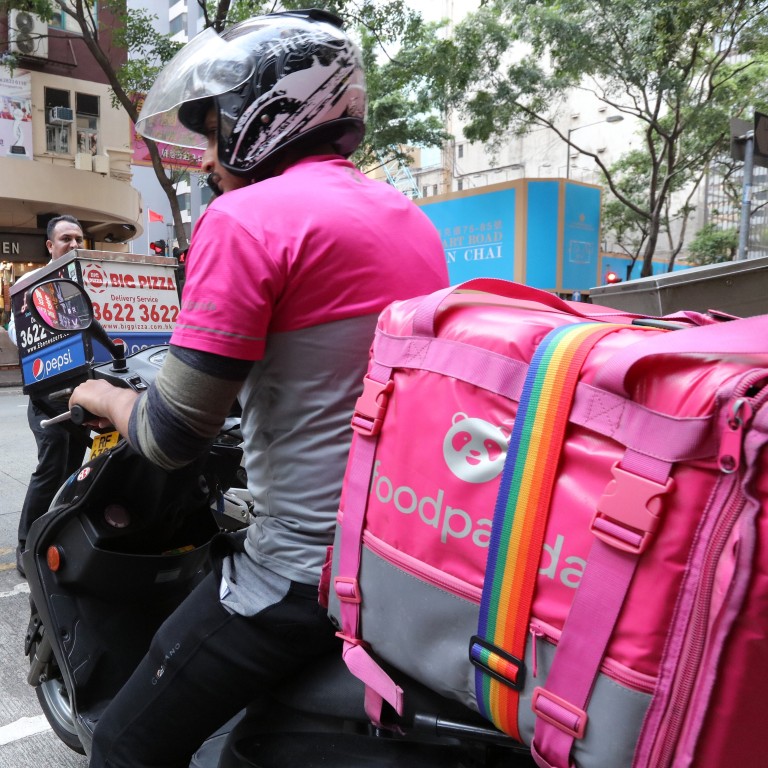
Work from home, call for meals: food delivery platforms provide lifeline to Hong Kong’s empty restaurants
- Deliveroo, Foodpanda and Uber Eats report a surge in orders, eateries signing up
- Hit by hard times, top-end restaurants and cafes start offering home deliveries too
The three main delivery platforms, Deliveroo, Foodpanda and Uber Eats, have seen orders rise, with more food outlets signing up too.
Deliveroo has also invested more than HK$10 million (US$1.29 million) in a common kitchen hub in Quarry Bay, where restaurants cook their takeaway meals. The company’s general manager in Hong Kong, Brian Lo Ka-chung, said sales and orders had doubled in the first three months of the year as Covid-19 crisis hit, compared with the previous quarter.
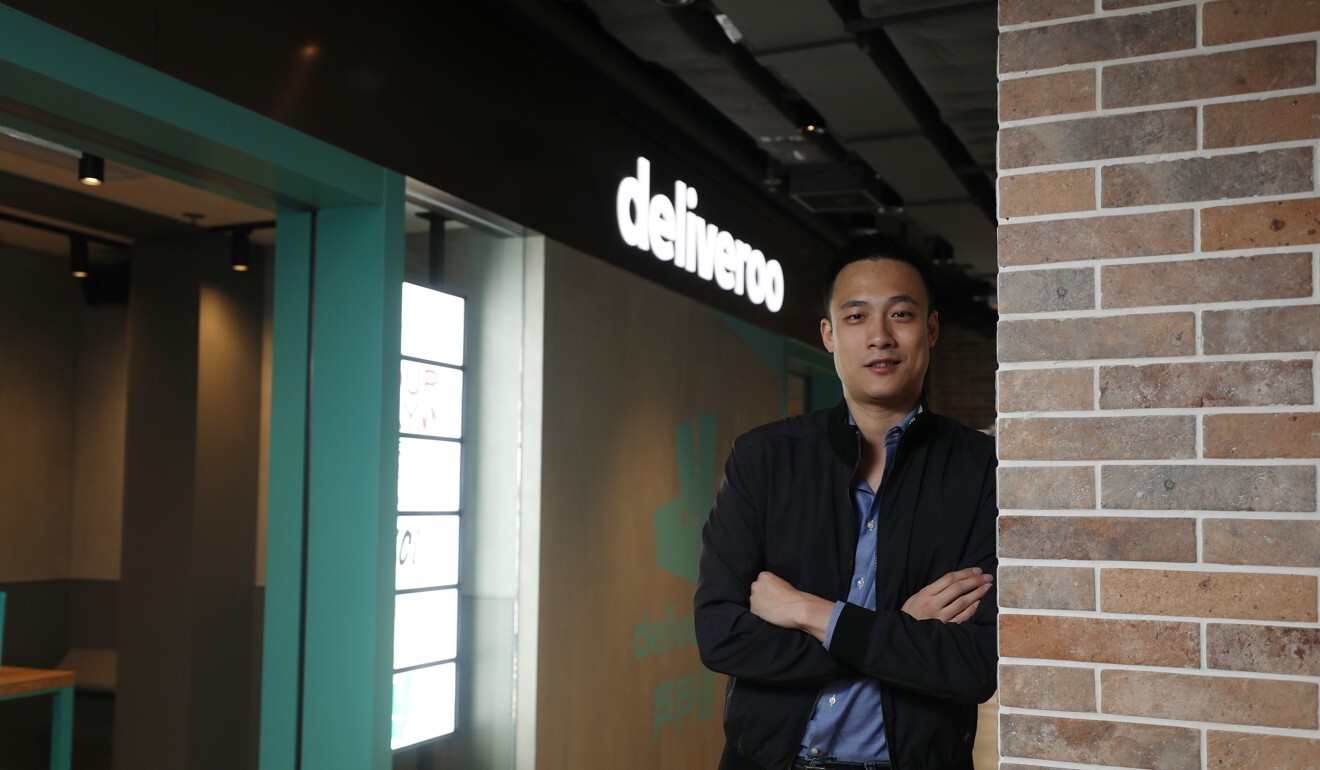
Between January and late March, 1,500 eateries joined the platform, raising the total number of restaurant partners to about 6,500 – nearly 40 per cent of the city’s licensed restaurants and factory canteens.
“Many restaurants used to be reluctant to join or concerned that their branding would be affected,” Lo said. “But for survival’s sake, they are now trying food delivery.”
Among the city’s measures to slow the spread of the coronavirus, restaurants have been told to run at half capacity for dine-in services, with public gatherings of no more than four people until April 23.
The restrictions heaped misery on eateries already reeling from the tourism standstill and work-from-home policies at many workplaces.
Food delivery, once considered unnecessary in a city with numerous tasty options on practically every street, has now provided a lifeline to stricken businesses. Even luxury hotels Mandarin Oriental in Central and The Royal Garden in Tsim Sha Tsui have introduced their own delivery services.
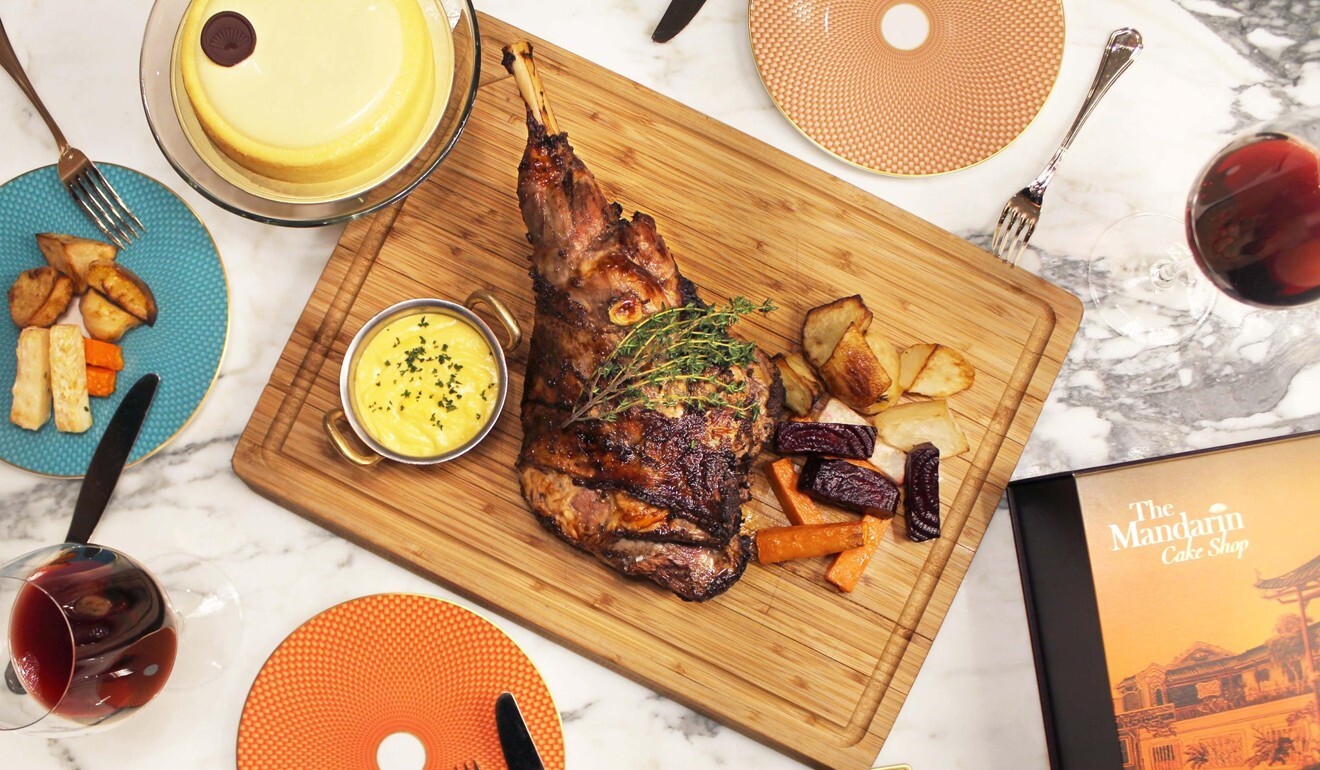
General manager Pierre Barthes said: “The Covid-19 virus is spreading globally and is clearly having an impact on all industries, and Mandarin Oriental, Hong Kong is certainly not immune to this.”
For the first time, the upscale Italian Cova Caffe will send regular sized cakes priced above HK$398 (US$51) to customers at their homes, with no delivery charge.
Lo from Deliveroo was unconcerned about intensifying competition, saying it was important that restaurants which previously did not do deliveries were now willing to try. “Today they might do it themselves. But the next step is, if they can’t handle the orders, they’ll come to our platform,” he said.
Uber Eats, with 2,500 restaurant partners, also sees the trend of more restaurants offering discounted takeaway services as an opportunity rather than competition.
Michelin-starred restaurants are offering takeaway menus
“Businesses are trying to provide Hong Kong people with another way to enjoy food and doing what they need to do to survive,” said Richard Willder, Uber’s public policy and government affairs head in Hong Kong. “We’d be very interested in working with these restaurants and hotels to offer our technology.”
Foodpanda, with more than 7,000 restaurant partners, said enquiries for collaboration have quadrupled recently. “Instead of viewing these hotels and eateries as competitors, we see this as a chance to cooperate with them,” Hong Kong CEO Arun Makhija said.
But Jennifer Chu, head of operations from Pololi, which sells Hawaiian-inspired food such as sashimi rice bowls, noted competition among restaurants was heating up as more rushed to partner with the delivery platforms. This prompted the firm, with five branches in the city, to offer 20 per cent discounts across its menu for home deliveries.
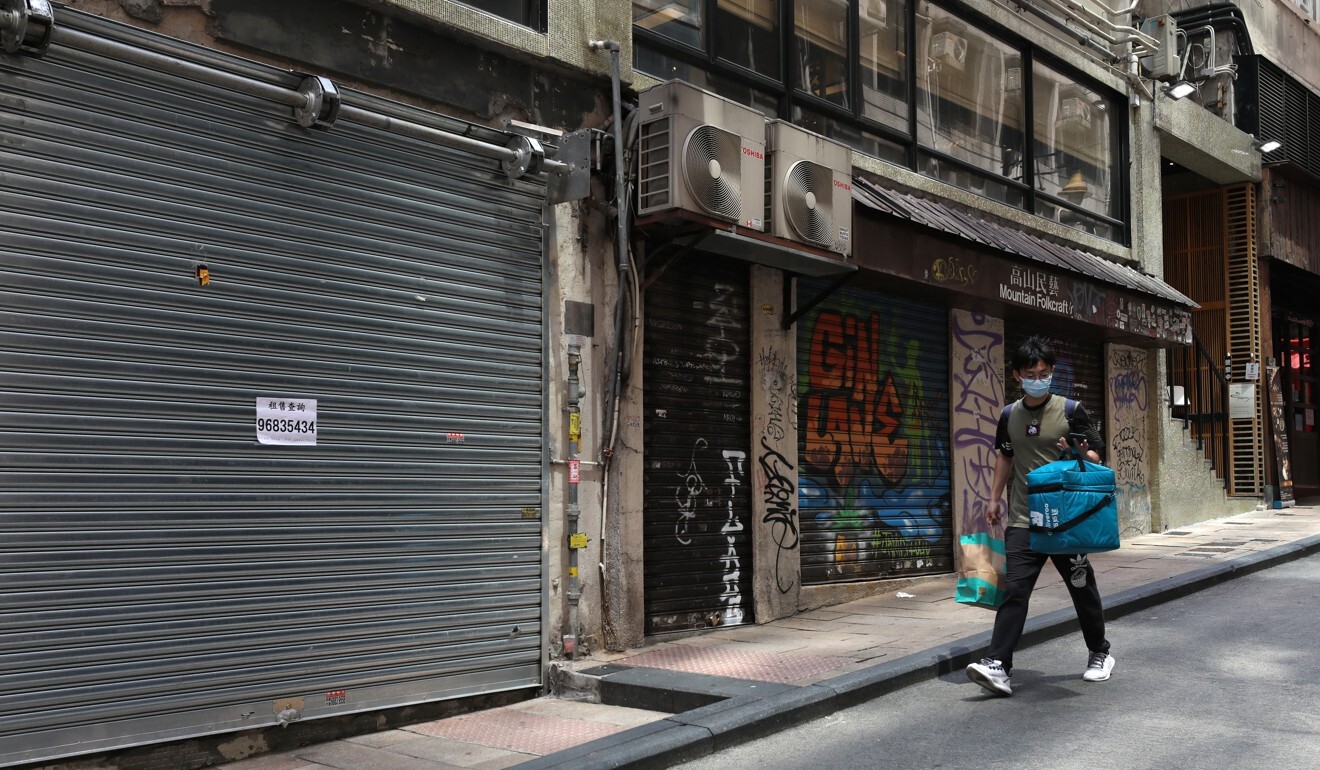
“Price is an important factor now. When I can get my own takeaway meal from [local style cafe] cha chaan teng at HK$40 to HK$50, I may not buy a sashimi bowl delivered at HK$90,” Chu said.
Pololi’s sales from walk-in customers plunged by 30 to 40 per cent in February and March compared with January, she said, and the recent increase in delivery orders might not make up for the earlier losses.
Christian Mongendre, founder of vegetarian restaurant Treehouse, said his revenue slumped by 30 to 50 per cent compared to before the health crisis, and the delivery and takeaway sales were helping in the short term. “This is giving us a lifeline to survive at the moment,” he said.
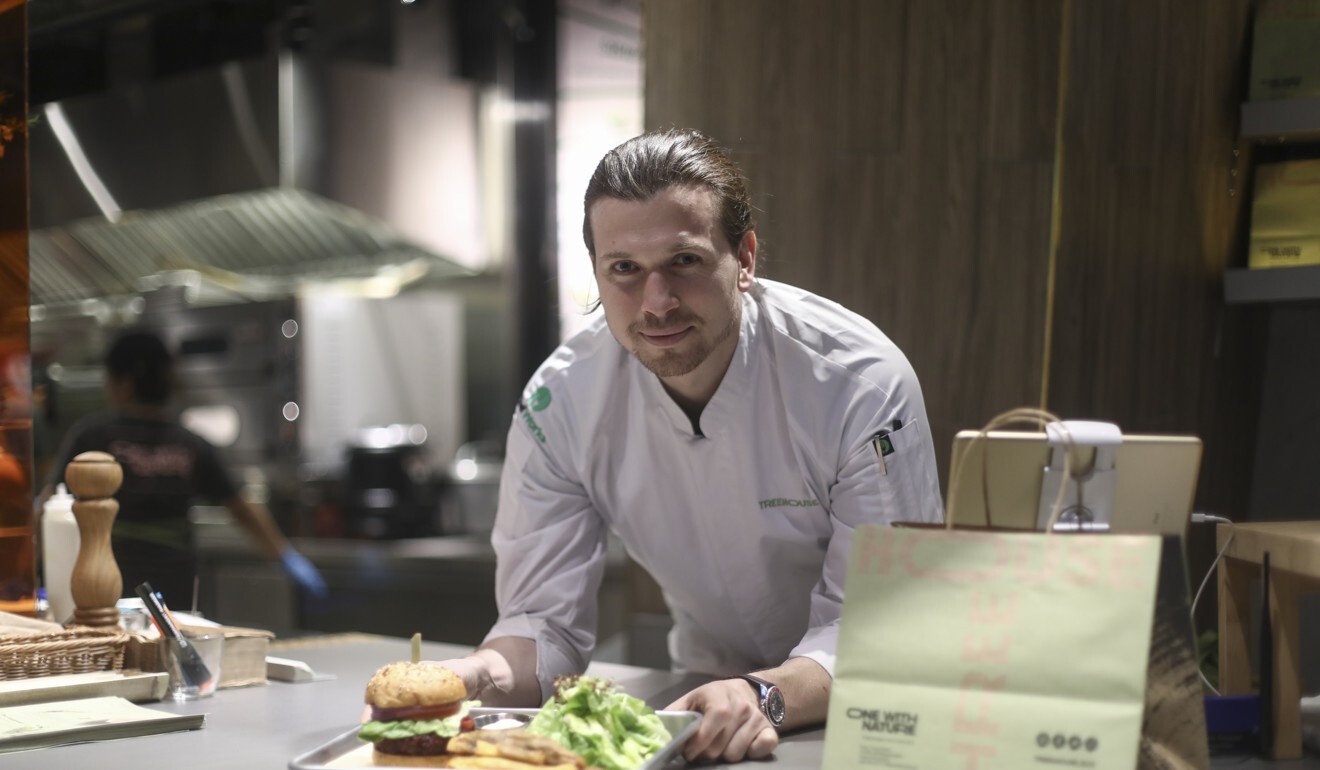
Amanda Fong, 23, who worked in finance, said she began ordering five meals a week from Deliveroo after her company introduced working from home a month ago.
“It is convenient because if I’m busy with work, I don’t need to leave the house or cook,” Fong said. “Even cooking easy meals means having to go out for groceries, which takes time.”
But soon she found her food bill shooting up, as she used to have subsidised dinners at the office. Before she started working from home, she spent about HK$800 to HK$1,000 a week on meals, but that doubled when she started ordering from Deliveroo. “So now I try to cook myself or get takeaways instead of deliveries,” she said.
Until last month, Erin Wong, 28, who works in the communications industry, had never ordered food from any of the delivery platforms. Although she still goes to the office, she began ordering food online twice or three times each week, mostly Chinese noodles, spending about HK$300.
“With the pandemic getting serious, my colleagues don’t want to go out to eat. So we began ordering meals to our workplace,” she said.
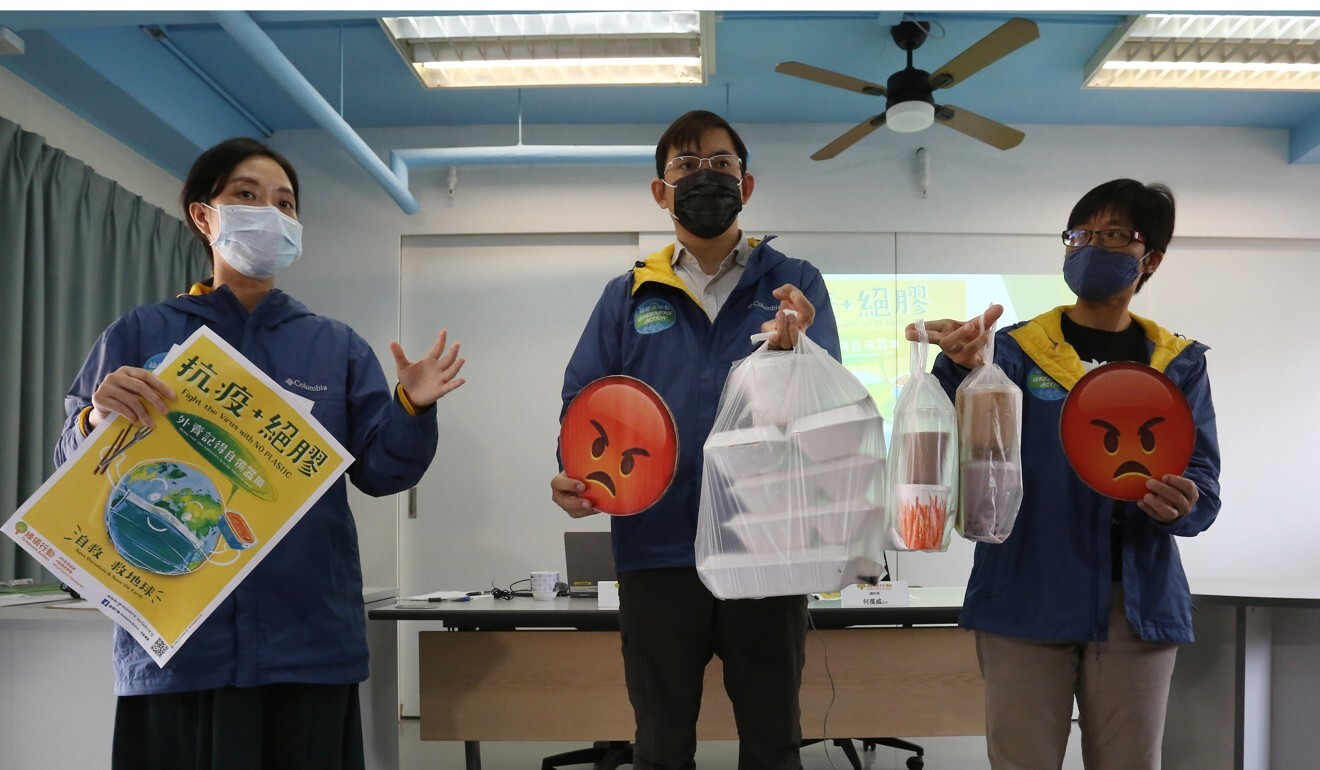
Meanwhile, Hong Kong’s green groups have been watching the buzz in the food delivery scene and worry about the impact on the environment.
The group Greeners Action conducted a survey of about 2,000 people and found that Hongkongers were ordering 21.1 million takeout meals a week, 55 per cent more than in the period before Covid-19 hit the city. Just over half the respondents said they were ordering more takeaway food than before the outbreak.
The group estimated that the amount of single-use plastic cutlery, boxes and takeout bags increased to 101 million pieces per week this month, up more than 2.2 times from same period last year.
“A takeaway meal for a family of four will mean 26 individual pieces of plastic,” said Jac Lun Ka-yu, the group's senior project officer, who encouraged people to use their own food containers for takeaways.
Hahn Chu Hon-keong, director of environmental advocacy for The Green Earth, encouraged people to share the names and locations of restaurants offering rebates to those who bring their own containers.


